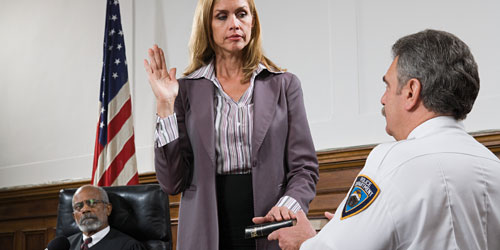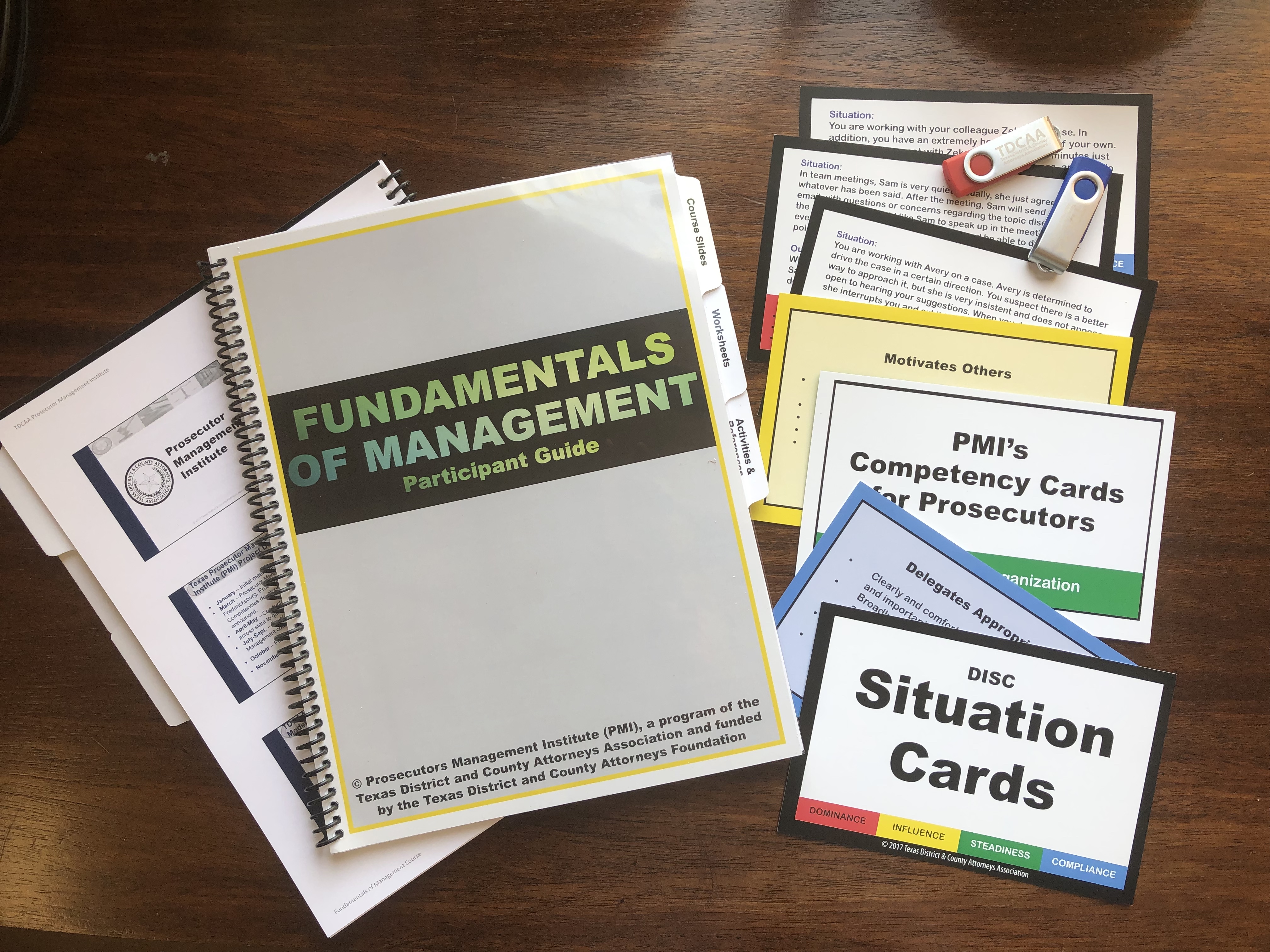How is it still only February? It feels like we’ve already had a year’s worth of “news” in 2018 and it’s only two months old. Heck, a state senator was just convicted in federal court of multiple counts of wire and securities fraud and it barely made the front pages. We are living in interesting times, friends.
Need a tout sheet for next week’s election?
Early primary voting is in full swing, so if you are curious to know which legislative races are most likely to come down to the wire, check out this Hot List maintained by the Texas Tribune or this Hot List provided by the Texas Association of Realtors’ PAC. (We have no comment on their endorsements, but TREPAC is just about the biggest single-industry PAC in the state capitol, so you can count on them to know how tight these races are likely to be.)
Good luck to all of you on the ballot this spring, and please let Rob (robert.kepple@tdcaa.com) know the outcome of any contested prosecutor races in your area.
Interim committee hearings
Now that the early voting period is upon us, we’ve had a sudden flurry of interim hearings (what a coincidence!), including a few on issues that may be important to you. Here’s a recap of some of those issues on which we suspect we’ll have more to say as the 2019 session nears.
On Wednesday of last week, the Senate State Affairs Committee took up a proposal from the Office of Attorney General (OAG) to give that office more jurisdiction over multi-jurisdictional human trafficking cases to provide “more uniform enforcement.” The committee heard testimony from OAG lawyers and Carmen White, the chief of the Dallas County Criminal DA’s new Crimes Against Children Unit, who ably described how her office has been tackling these problems (with the help of a grant from the governor’s office) in a manner that obtains concrete results and helps rehabilitate the victims of these crimes. To be honest, there really wasn’t much of a case put forth for why the current arrangement is unsatisfactory or why the State needs yet another prosecutor cook in the human-trafficking kitchen. As the hearing progressed, the committee seemed to be more interested in other enforcement ideas—such as the potential creation of a statewide database to track trafficking victims—but don’t be surprised if a bill is filed next year to grant OAG more prosecutorial authority in this area simply because the current holder of that office wants it. (For those who want more details, archived video of the hearing is available here; the human trafficking discussion occurs from 0:00:01–1:02:30.)
Next, that same committee discussed granting OAG greater prosecutorial authority over criminal violations of health and safety laws relating to abortion providers. That’s when the real “fun” began, especially when OAG representatives testified that they needed more criminal jurisdiction because some local prosecutors were refusing to enforce or defend recently-passed laws on that topic. Several senators were appalled to hear that, unaware of that the fact that such statements were completely false. Fortunately, Rob and Shannon were able to visit with committee members afterwards to correct the record and explain that some local prosecutors have opted out of the federal lawsuit challenging that new law because OAG has taken the lead in defending the state (as commonly happens in these situations), and that all prosecutors will be bound by the final result, regardless of who is involved in the litigation. But make no mistake—on this issue, facts may take a back seat to other legislative priorities, so we’re sure we’ll be talking about this again next session. (Video of this part of the hearing is available here, from 1:20:30–1:57:30).
On Thursday, the Senate Select Committee on Election Security took a day’s worth of testimony on various election fraud issues, including detailed testimony from a panel that included Starr County DA Omar Escobar and Asst. AG Jonathan White, who both encouraged the Legislature to provide state and local officials with more information and resources with which to investigate and prosecute local election fraud. This was a cordial and cooperative hearing, but it once again pointed out the confusion many people have about who prosecutes what in Texas. As a result, we have dusted off, revised, and re-issued our Texas Prosecution 101 memo to remind people of how prosecution works under the state constitution. We expect this to be a continuing topic of discussion heading into the next session, so please review that document (linked above) and educate your local legislators about how things work—and work well—under the constitutional framework established more than 140 years ago.
In other hearings this month … The House County Affairs Committee heard testimony on the implementation of the Sandra Bland Act, but nothing actionable came of it … and the Senate Transportation Committee used its interim charge on human smuggling to take extensive testimony on the problems of human trafficking, once again confusing people about the differences between smuggling and trafficking (oh well!).
Future interim hearings
Hearings posted for March (with links to official notices) include:
Wednesday, March 21, 10:00 a.m., State Capitol Room E1.030
CHARGES: Monitor HHSC’s expansion of inpatient psychiatric capacity; monitor impact of critical-needs funding at DFPS.
Thursday, March 22, 9:00 a.m., Senate Chamber
CHARGES: Opioid abuse; substance abuse treatment; overprescribing and doctor-shopping; timeliness of DFPS home visits regarding reported abuse/neglect; services and support for children in foster care; foster parent recruitment.
Monday, March 26, 11:00 a.m., State Capitol Room E2.014
CHARGES: Imposition of the death penalty on defendants with serious mental illness or intellectual disability; jury instructions used in capital sentencing.
[Note: This committee will hear only invited testimony, and it is likely to be entirely one-sided; if you wish to testify as an invited witness on either topic, please contact Shannon.]
Tuesday, March 27, 10:00 a.m., State Capitol Room E2.010
CHARGES: Open meetings law and disaster assistance; state supreme court rulings on public information and government contracting and procurement; state agency cybersecurity.
If you have questions about any of these hearings, please contact Shannon for more details.
Governor’s campaign rolls out new sex crime proposals
As part of his re-election campaign, the governor recently rolled out a new policy proposals on human trafficking and related sex crimes. There are too many to list here, but some of the proposed changes include:
- Increased punishments for promoting prostitution, compelling prostitution, kidnapping of a child, sexual performance by a child, and child pornography;
- Expunctions for convicted prostitutes who were victims of human trafficking at the time of their offense;
- Increased funding to DPS to create regional human trafficking investigation squads;
- Increased funding for lab testing of rape kits to eliminate the backlog; and
- More GPS monitoring of certain family violence offenders, human traffickers, and repeat sex offenders.
Again, for the full agenda being proposed by the governor, click on the link above. Nothing can happen on these proposals until legislators file them as bills next session, but you might want to become familiar with them before then in case you are asked about them during election season.
Forensic Science Commission looks at blood spatter science
As we mentioned last month, the Forensic Science Commission has adopted an accreditation process for bloodstain pattern analysis (BPA) due to increasing confusion in the courts over that type of evidence and related testimony from unaccredited entities. The Commission has exempted that discipline from these new accreditation requirements until May 1, 2019, to allow experts and entities who are currently performing BPA sufficient time to become accredited. The Commission is also offering training and related assistance to anyone who wishes to become accredited. If you or someone in your jurisdiction wants to learn more about BPA accreditation, contact Jody Koehler, the Commission’s Senior Scientific Advisor, or Leigh Savage, the Commission’s Associate General Counsel.
And while we’re talking about forensic science, note that the Commission is in the final stages of developing the licensing program for the following disciplines: seized drugs; toxicology; forensic biology (including DNA); materials (trace evidence including chemical analysis and pattern comparison); questioned documents; and firearm and tool mark examination. Remember, the Legislature has required all forensic analysts to be licensed beginning January 1, 2019, which includes anyone who performs a forensic analysis, technically reviews a forensic analysis, or draws conclusions from or interprets a forensic analysis for a court or crime laboratory.
Rapid DNA update
Another emerging issue in forensic science concerns the passage of the Rapid DNA Act of 2017 by Congress. As a result of that new law, the DPS Crime Laboratory is receiving questions about the use or potential use of that technology, so it recently posted answers to some frequently asked questions on its website, which you can read here. Check out that webpage if you have questions of your own about this cutting-edge technology, and visit the FBI’s webpage about Rapid DNA for further information.
Hemp oil CBD
Based on the inquiries we’ve received over the past month, there seems to be a lot of confusion throughout the state (and country) about the legal status of cannabidiol (CBD) oil. Part of this confusion may stem from news this month of first legal prescription of state-regulated CBD oil in Texas for certain epileptic patients. However, that state program has nothing to do with most of the CBD-related products being sold over the counter at pharmacies and health stores in unregulated form. Those products are being sold in apparent violation of a change in federal drug scheduling that occurred last year and is currently being challenged by the hemp industry through a lawsuit now pending before the U.S. Ninth Circuit Court of Appeals. While interested observers monitor that case, there is one other Texas change to note.
Unbeknownst to everyone we’ve talked to, back in May 2017, our own HHSC scheduled a new, broader definition of “marihuana extract” to match that adopted by the Feds. On its face, the new change appears to make any CBD oil derived from any cannabis plant a Schedule I substance unless it is derived from “extracted resin.” This is broader than the statutory definition of “marihuana” in the Controlled Substances Act, which means a prosecution under the new, broader definition would have to be pursued under the miscellaneous substances offense in that Act (for a scheduled substance that is not in a penalty group). We’re still working all of this out, but if you have questions or comments about how this might be playing out in your jurisdiction, contact Shannon for more information.
Crimes Against Children registration is open
Our 2018 Crimes Against Children course is now open for online registration! This four-day event will be held from April 10th to the 13th in centrally-located San Marcos, Texas. One of our most requested specialty schools, Crimes Against Children attendees will receive 18.25 CLE / TCOLE hours, including 3 hours of ethics. In addition to the normal in-depth training for prosecutors who try some of our most difficult cases, we have added a third track of training for prosecutors assigned to CPS caseloads. The instruction will be fantastic, as will the company! Click here for course and registration details.
Quotes of the Month
“Where can we make the most impact? … [P]risoner re-entry reform. The problem is, there’s so much pushback from the right on mandatory minimum sentences, especially in the [U.S.] Senate, so we wanted to reduce that, but that’s a project for another day. … We feel like prisoner re-entry—we can do, we can get Jeff Sessions on board.”
Doug Deason, GOP donor from Dallas (and Right on Crime advocate), explaining why he and others affiliated with the Koch Brothers may now be focusing on prisoner re-entry and rehabilitation instead of other, more controversial criminal justice reform measures.
“I’ve been trying since 1983 to get lawyers inside a grand jury, so I’m going to work on that again. I’m going to work with the Tea Party on that. I work with everybody, I don’t care who they are. Ain’t no shame in my game.”
State Rep. Senfronia Thompson (D-Houston), Texas’ longest-serving female legislator, on one of her policy goals for next session.
“[The Uresti case] is one for the record books. This is the case that keeps on giving to an ethics professor.”
Dennis Elam, a Texas A&M-San Antonio professor, when asked why he planned to use details from the federal fraud trial and conviction of State Sen. Carlos Uresti (D-San Antonio) in his upcoming accounting ethics class.
“If we’re going to bring about lasting change, real change, in our criminal justice system, it will start with the people in this room.”
Sharon Watkins Jones, director of political strategies for ACLU Texas, at a DA candidate forum in Dallas County earlier this month. The ACLU expects to spend as much as $300,000 mobilizing voters for that contested race this fall.
“They passed a budget that they knew was dependent upon a 14 percent increase in your local property tax, and yet at the same time, they point fingers at the local [governments] and say we’re out of control.”
Glen Whitley, GOP county judge in Tarrant County, going “unplugged” (his word) in explaining how some people at the state capitol are trying to have their cake and eat it too.



